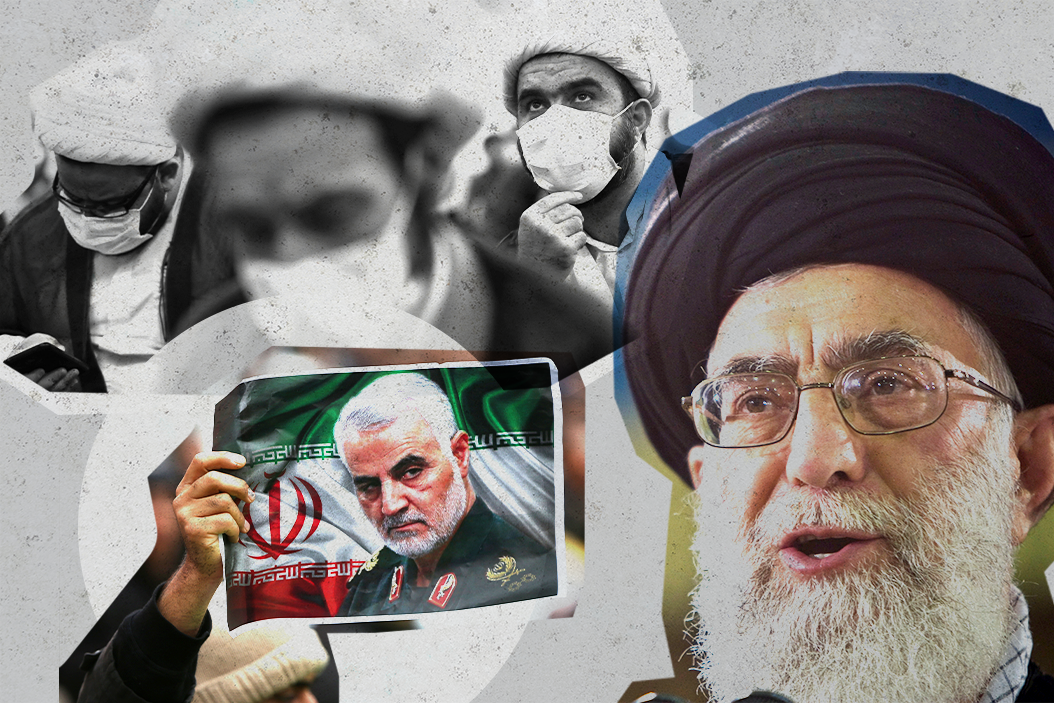News
December 02, 2020
Iran's nuclear tug-of-war: Hardliners in Iran's parliament passed a bill Tuesday suspending UN inspections of its nuclear sites and giving the go-ahead to massively increase uranium enrichment unless the US lifts its sanctions by February. Iranian president Hassan Rouhani opposes the measure, saying it would be "harmful" to diplomatic efforts to revive the 2015 nuclear deal with the incoming Biden administration in the US. But Iran's parliament doesn't actually need Rouhani's approval to pass the law, and regardless, Supreme Leader Ayatollah Ali Khamenei will have the final say on policy – as always! If the law is passed, it will immediately raise the stakes for Biden, who takes office on January 20. Both he and Rouhani say they are keen to resume dialogue in hopes of reviving the nuclear deal, which President Trump walked out of in 2018. But just days after the architect of Iran's nuclear program was assassinated (likely by Israel with the US' blessing) the hurdles to even beginning those talks are rising fast.
What's next for Hong Kong's beleaguered opposition? China struck a major blow against the Hong Kong democracy movement on Wednesday, when a local court sentenced prominent democracy activist Joshua Wong to more than 13 months in prison for his role in last year's protests, while his co-defendant, Agnes Chow, was given a 10-month sentence. Wong, Chow and Ivan Lam, another member of the pro-democracy group, pleaded guilty to unauthorized assembly charges in connection with a June 2019 demonstration in which Wong shouted "no riots, only tyranny" through a loudspeaker. That protest, sparked by Beijing's attempt to extend its legal jurisdiction over Hong Kong, swelled into months of sometimes violent mass demonstrations against mainland China's broader attempts to quash the city's unique democratic institutions. As those lost steam this year amid the pandemic, Beijing imposed a draconian new security law on the city, with wide scope to punish dissent. The jailing of Wong comes just a few weeks after pro-democracy lawmakers in Hong Kong resigned en masse over the expulsion of some of their members from the city's legislature. Can Hong Kong's once-vibrant democracy movement survive?
A Hungarian politician's delicious downfall: A prominent anti-gay member of Hungary's far-right Fidesz party has resigned his post as an EU parliamentarian after he was caught fleeing an illegal gay sex party in Brussels. Jozsef Szajer, who reportedly shimmied down a drainpipe when the police showed up to bust the soiree for violating pandemic lockdown rules, was reportedly caught on the street outside with his hands bloodied and drugs in his backpack. Szajer, a founding member of Hungarian Prime Minister Viktor Orban's ultraconservative Fidesz party, headed the party's delegation to the European Parliament. He was directly involved in efforts to ban gay marriage at home in Hungary. He has apologized to his family for "the misstep."
More For You
Prime Minister Narendra Modi, with President of the European Council António Luís Santos da Costa, and President of the European Commission Ursula von der Leyen, at Hyderabad House, in New Delhi, India, on Jan. 27, 2026.
DPR PMO/ANI Photo
On Tuesday, the world’s largest single market and the world’s most populous country cinched a deal that will slash or reduce tariffs on the vast majority of the products they trade.
Most Popular
Sponsored posts
Five forces that shaped 2025
What's Good Wednesdays
What’s Good Wednesdays™, January 28, 2026
Mexican President Claudia Sheinbaum Pardo stands alongside Canadian Prime Minister Mark Carney and US President Donald Trump during the 2026 World Cup draw at the John F. Kennedy Center for the Performing Arts in Washington, D.C., on December 5, 2025.
Deccio Serrano/NurPhoto
Canadian Prime Minister Mark Carney has repeatedly tussled with US President Donald Trump, whereas Mexican President Claudia Sheinbaum has tried to placate him. The discrepancy raises questions about the best way to approach the US leader.
Fighters of the Qassam Brigades, the armed wing of the Palestinian Islamist Hamas movement, attend a rally marking the 35th anniversary of the group's foundation in Gaza City on December 14, 2022.
Photo by Majdi Fathi/NurPhoto
10,000: The number of Hamas officers that the militant group reportedly wants to incorporate into the US-backed Palestinian administration for Gaza, in the form of a police force.
Walmart is investing $350 billion in US manufacturing. Over two-thirds of the products Walmart buys are made, grown, or assembled in America, like healthy dried fruit from The Ugly Co. The sustainable fruit is sourced directly from fourth-generation farmers in Farmersville, California, and delivered to your neighborhood Walmart shelves. Discover how Walmart's investment is supporting communities and fueling jobs across the nation.
© 2025 GZERO Media. All Rights Reserved | A Eurasia Group media company.
